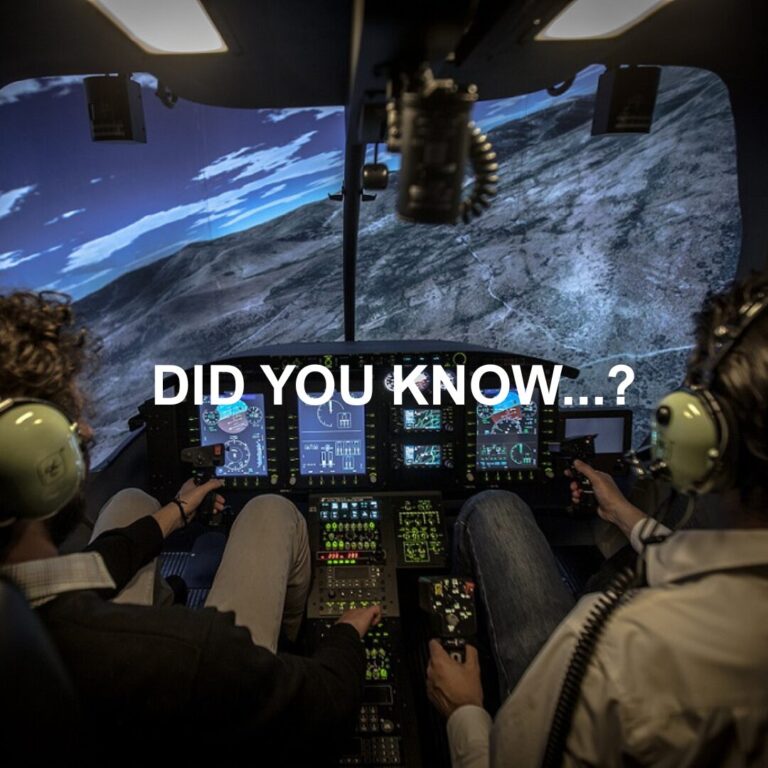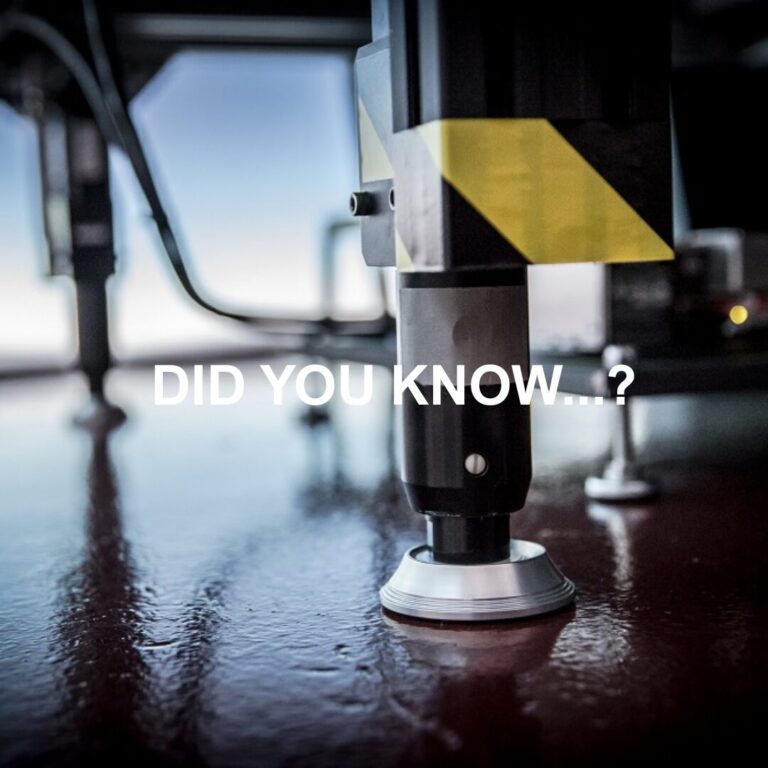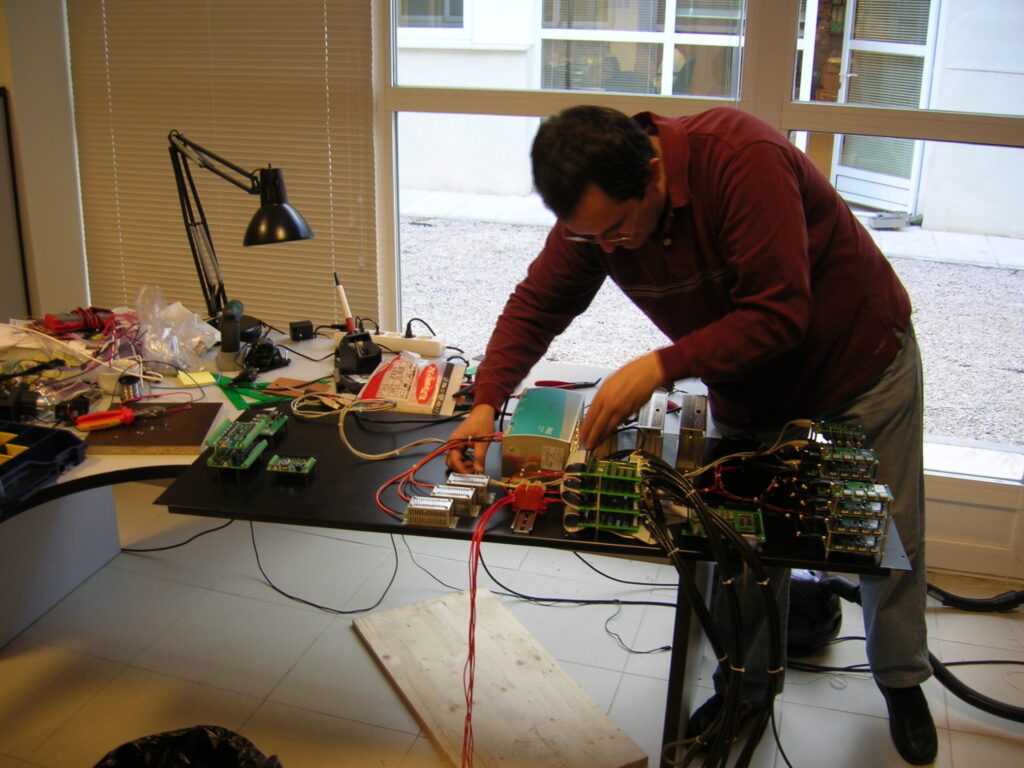
This month, entrol is celebrating 20 years of history. But beyond a date on the calendar, we are commemorating two decades of an idea that transformed into a legacy: making the highest quality synthetic training accessible. This journey, which began with two brothers and today includes over 160 simulators across five continents, has been driven by a philosophy of constant innovation.
To truly understand the DNA of our company, we had the privilege of sitting down for an in-depth conversation with Tomás Ladrón de Guevara, Project Manager at entrol. Below is the full interview.
From a garage to global leadership: the founding story
Every great company has an origin story, and entrol’s is a testament to vision and determination. It began not in a boardroom, but in a garage in Alcalá de Henares, where two brothers, Luis and Pedro Olarte, decided to build a simulator with their own hands. Pedro was the brain behind the software and flight tests, while Luis handled the hardware and commercial strategy. That practical, problem-solving spirit is still embedded in every simulator we manufacture today.
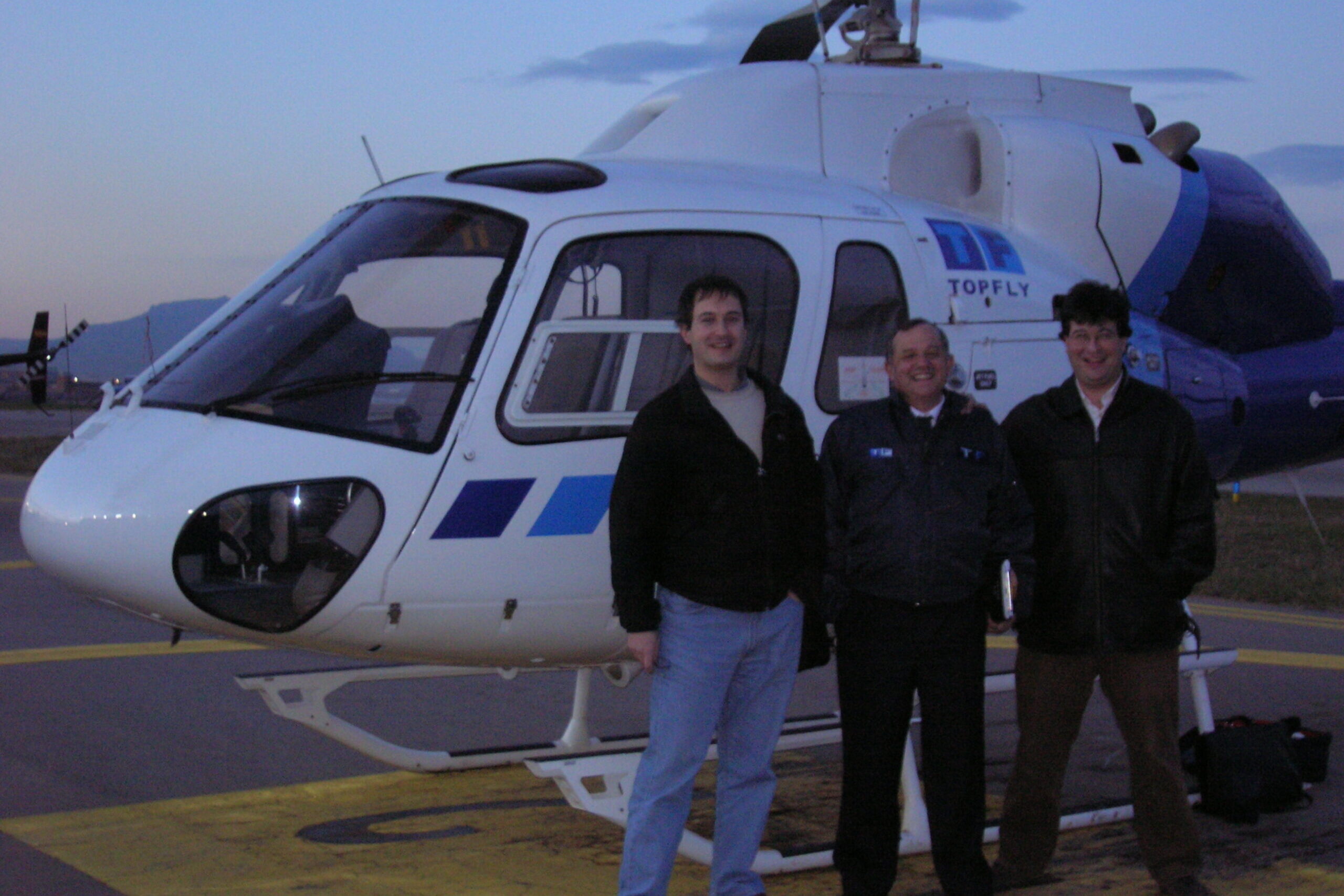
The engine of innovation: a culture that creates leaders
Entrol’s ability to stay at the vanguard doesn’t lie in a secret formula, but in its people and the environment cultivated for them.
It is this culture that allows the company not just to follow trends, but to define them, achieving milestones that once seemed unattainable.
“Looking back at what we’ve achieved is incredible,” declares Luis Olarte, CEO of entrol. “But our greatest pride isn’t just growth, but leading the industry with unique milestones. We aren’t following trends; we are creating them, and that has become entrol’s DNA.”
This leadership is materialized in pioneering achievements that have redefined the industry:
- Manufacturing the world’s first FTD for the SkyCrane, demonstrating a unique ability to solve the most complex simulation challenges.
- Pioneering the certification of simulators with LED visual technology (enwall), setting a new standard for realism and reliability.
- Making a consolidated entry into the Full Flight Simulators (FFS) market, the culmination of two decades of experience and development.
An Interview with Tomás Ladrón de Guevara, CTO
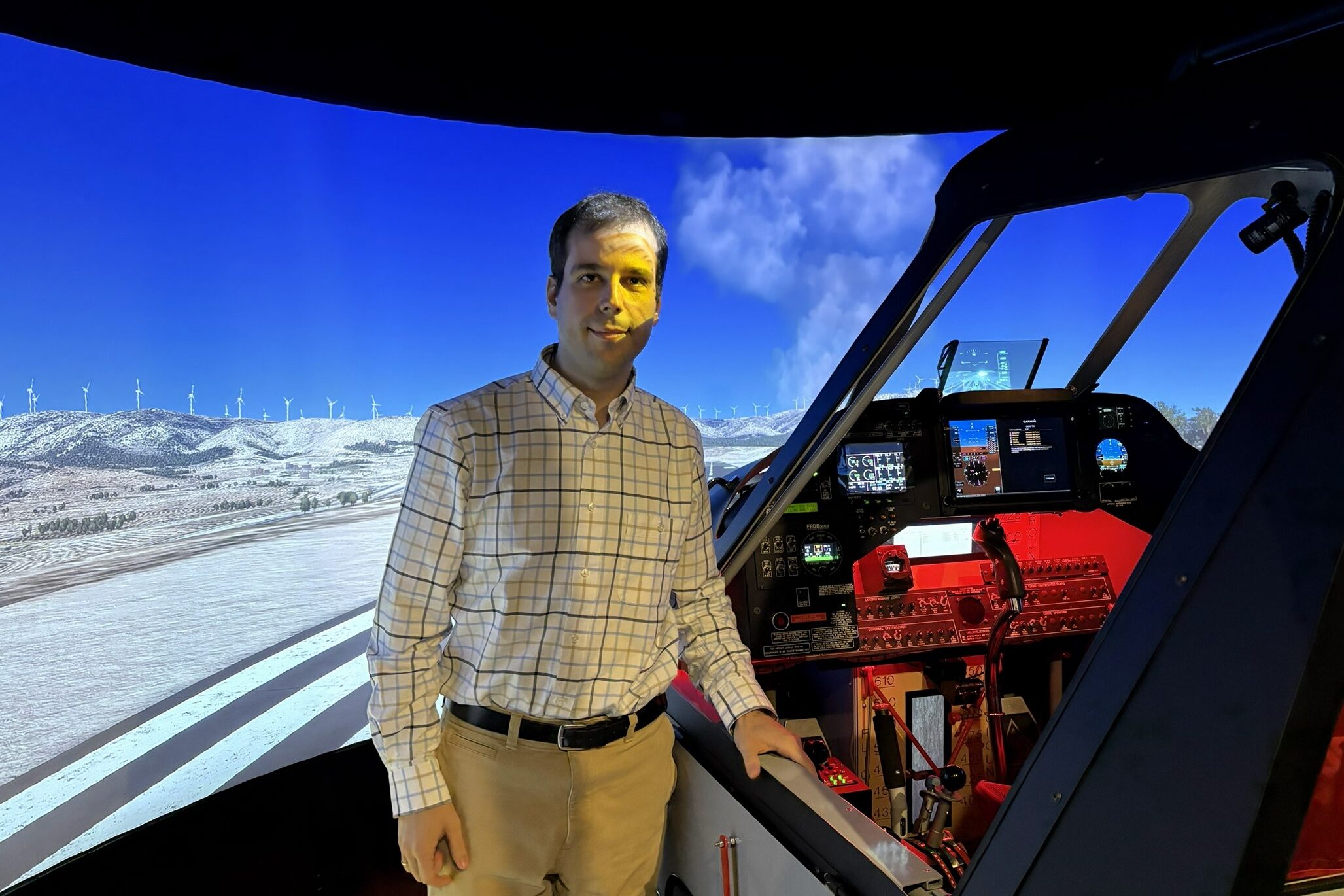
In its 20-year history, entrol has become a benchmark. What do you consider to be the 3 most important technological milestones that have defined the company’s evolution to this day?
The evolution of ENTROL is described by the level of the projects it has been developing. It has taken a lot of effort and improvement to move up the ladder in the level of our products, from FNPT to FFS. We could highlight the development of the vibration and motion platform, the improvement of our Control Loading System, and the process of obtaining data from real aircraft as major steps that have allowed us to get where we are today.
The simulation market has evolved rapidly. How has entrol adapted its product development approach in response to changing customer needs and new industry demands?
Technology evolves and simulators continue to improve, but the focus on product development has not changed. We listen to the client and their pilots, we try to understand their needs, and we work to provide them with a solution tailored to what they need.
Let’s talk about the internal process. How have your R&D processes evolved over these two decades? What makes entrol different when it comes to innovating and developing new technology?
At entrol, we invest in and promote two necessary factors for innovation and technological development to be sustained over time. On one hand, a capable human team, willing to continue facing challenges year after year. On the other hand, an environment in which that team can develop and provide solutions.
Of all the technologies you have launched (such as Mixed Reality, LED visual systems, or the new FFS lines), which do you consider to have had the most impact on pilot training and why?
Without a doubt, the enwall LED opens the door to a new generation of display technology that will transform the industry. This new standard improves immersion and training, and it facilitates the maintenance of the devices. Customers have welcomed it in a magnificent way. The FFS line will provide solutions for operators all over the world. It will mean new devices, closer to the customer, customized with the operator’s configuration, and updated with the latest avionics version. In them, it will be possible to train and check all flight maneuvers. We hope it will facilitate an increase in the number of available pilots and better preparation for in-flight emergencies.
The future is a horizon of new technologies. What role will these trends play in the next generation of entrol simulators and how are you preparing for them?
New technologies are the disruptive engine that helps our products evolve. At entrol, we look for talent, we invest in training, and we study and work with all the technologies that come to the market to see how they can improve training.
As a company with such a solid legacy, what is the project you are most proud of at the moment? And more importantly, what does that project represent for entrol’s long-term vision?
It is difficult to choose just one project from all those we have carried out. In all of them, we have faced challenges, we have learned, and they have given us the opportunity to improve and collaborate with suppliers and clients that we continue to maintain. In the end, the most important one is always the one we are working on at that moment; and now it’s the FFS. Without a doubt, this project will have a great impact on the industry. For us, it means continuing to grow and entering the highest tier of certified simulators.
To close, what message would you like to send to entrol’s customers on this 20th anniversary about the company’s commitment and vision for the next 20 years?
We believe in the impact that the aeronautical sector has on society. It connects people, increases leisure, facilitates tourism and commerce, and is a key sector in technological innovation. But not only that. It is also crucial in international cooperation and in the response to emergencies and disasters. At ENTROL, we want crews to be ready when they go out to fly, for more pilots to be able to train and be prepared for emergency situations. Our commitment is to work to help operators and pilots in their training, providing them with better tools.

